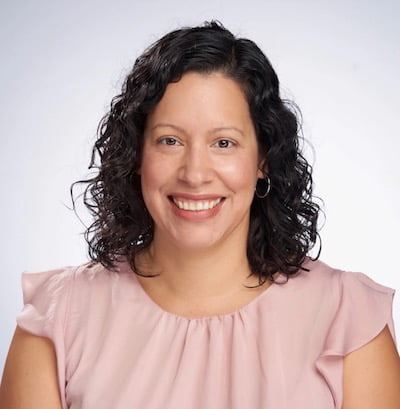SUPAI, ARIZONA, January 12, 2017 – This morning, children of the Havasupai Tribe and the Native American Disability Law Center (“NADLC”) filed a federal civil rights action against the United States government for failure to provide equal educational opportunities afforded to other students throughout the country. The 101-page complaint details a knowing failure by the federal Bureau of Indian Education (“BIE”) to enforce federal statutes and regulations to provide Native American children with a basic education, a system of special education, and necessary wellness and mental health services. The suit is the first federal civil rights action ever filed to address a wholesale denial of educational opportunities for both the general education and special education of Native American students. It was filed in U.S. District Court in Phoenix.
“The BIE has not provided my grandson with a decent education,” said Frank C., grandfather of Plaintiff Stephen C. a member of the Havasupai Tribe. “My grandson has special needs, but the school is not even trying to help him. Instead, he is sent home from school almost every day. He is in sixth grade, but he can barely read or spell basic words.”
The Havasupai Tribe is a federally recognized Native American tribe located at the bottom of the Grand Canyon in Northern Arizona. The civil rights action is brought by attorneys from NADLC, Public Counsel, the law firms Munger, Tolles & Olson LLP, and Sacks Tierney P.A., which are handling the case pro bono, and the ACLU of New Mexico.
The lawsuit challenges the federal government’s longstanding failure to provide equal education to Havasupai students, including:
- Failure to provide general education: The only subject areas at the Havasupai Elementary School (Grades K-8) are reading, writing, and math. There is no instruction in science, history, social studies, foreign language, art, or physical education. Nor does the school offer any culturally relevant instruction.
- Teacher vacancies and chronic understaffing: Due to insufficient numbers of teachers, the school regularly shuts down for weeks at a time. Classrooms have been run by non-certified personnel, such as a janitor and school secretary, or by temporary staff who rotate out every two weeks.
- Denial of basic instructional materials: The school does not have sufficient textbooks, a functioning library, or any extracurricular activities, such as athletics, arts, music, or clubs.
- No system to provide special education and a full day of education to students with disabilities: Because the school lacks the capacity and trained staff to deliver appropriate education and accommodations for children with disabilities, these students are routinely physically excluded from school and punitively disciplined on account of their disabilities.
“As NADLC learned long ago through our work with this community, the Havasupai school has been repeatedly neglected by the BIE,” said Alexis DeLaCruz, attorney at NADLC. “As a result of these shock-the-conscience deprivations, Havasupai children lack even a fighting chance at achieving academic success and reaching their full potential. This is an eminently fixable problem. It is time for the BIE to step up and fix the problems so that all Havasupai children, regardless of disability, are immediately provided the equal educational opportunities they rightfully deserve”
According to BIE data, children attending the BIE-operated school in Havasupai perform at only the 1st percentile in reading and the 3rd percentile in math (2012-13). BIE data also shows these children fall further behind the longer they attend the school.
“For years, the Havasupai Tribal Council has raised issues and concerns with BIE officials about the quality of the education being provided to our children,” said Don Watahomigie, chairman of the Havasupai Tribal Council. “And each time, we are given promises that are never delivered upon. These children are the Tribe’s future and their education is vital to our continued existence and success as a Tribe. The Tribe fully supports the efforts of the NADLC to bring about equal education justice for our children and we, as a Havasupai Nation, join our voice with theirs on behalf of our children’s education.”
“The U.S. government’s longstanding failure to provide even the most basic education to Native students is a stain on our national conscience,” said Kathryn Eidmann, staff attorney at Public Counsel. “Denying Havasupai students the tools to learn and fulfill their potential—tools that children throughout our country take for granted—communicates an unmistakable message that these children are disposable, that their education is a responsibility the federal government would rather wash its hands of.”
“The BIE’s failure to provide a real education for these children flagrantly violates one clear and specific federal law after another,” said Bryan Heckenlively, a partner in the law firm of Munger, Tolles & Olson LLP. “One set of regulations, for example, requires teaching science, social studies, arts, physical education, and foreign language, but the BIE does not teach any of those subjects at Havasupai Elementary School.”
“As a law firm that has represented Arizonans for the past 55 years, we are pleased to be part of the effort to secure access to meaningful education for Native students in Havasupai – quality education for all children within the state is vital to the future of Arizona,” stated Judith Dworkin, managing partner at Sacks Tierney P.A.
Eliza Bechtold, legal director of the ACLU of New Mexico, commented, “We are proud to be part of the legal team working to ensure educational opportunity for Havasupai students who attend the BIE school in Supai. This case is important for Native children throughout the country.”
The lawsuit seeks compensatory and remedial education on behalf of the Havasupai children, including the provision of a general-education curricula taught by fully certified teachers with access to appropriate instructional materials; special education and related services taught by appropriately trained teachers; as well as necessary wellness and mental health resources for Havasupai students.
For more information on the case, visit www.unitefornativestudents.org
###






